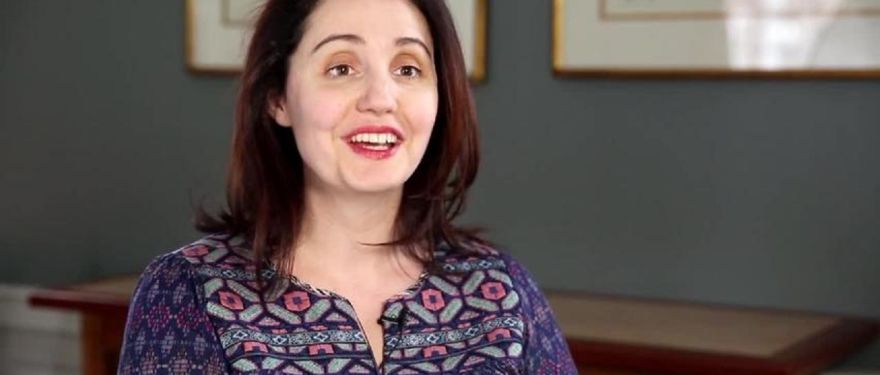For Rudina Seseri, coming to HBS as an Entrepreneur-in-Residence was a kind of homecoming. A 2005 graduate of HBS, Rudina has spent much of the last decade working as a venture capitalist - investing in startups and working closely with founders and executive teams. Rudina joined the Entrepreneur-in-Residence (EiR) program back in 2013 as a way to both give back to her alma mater and mentor the next generation of HBS entrepreneurs. We were lucky enough to chat with Rudina and learn more about her involvement with the program.
How did you become involved in entrepreneurship in your career?
As a partner in a venture capital firm, I have the opportunity to meet and fund amazing entrepreneurs who are building innovative companies in large markets. I am constantly inspired by their determination to take on big challenges by disrupting existing markets or by creating entirely new ones. I consider the opportunity to fund these ideas, and work with the founders to build them into large companies over the years of the investments, a true privilege.
Why did you want to join in the Entrepreneurs in Residence program?
Through the EiR program, I can contribute to the startup and entrepreneurial efforts at HBS and the university at-large. The more ideas and companies that emerge out of HBS, the more vibrant the startup economy becomes; and that means more opportunities for investors like me to fund and help grow those companies.
What does being an Entrepreneur-in-Residence involve?
In my role as an EiR, I get approached by students to advise them as they explore new business ideas and opportunities. Our discussions encompass topics from product development to go-to market plans, from co-founder dynamics to exploring funding opportunities, from strategic partnerships to board building efforts. I also get approached by students who don’t have an idea of their own, but are seeking to join startups or VC firms. In those instances, our discourse takes the shape of career advice and exploration. Beyond the office hours, as an EiR, I also participate in panels for the Rock Center for Entrepreneurship or lead sessions at the Harvard iLab. Most recently I led one about determining the right monetization paths for one’s business.
What has surprised you the most about the role?
I have been surprised by the breadth of ideas and how strong the entrepreneurial spirit is at HBS. It is not just the absolute desire and determination to start a business that I enjoy; it is also how diverse the set of ideas are. For example, during my last office hours, one student was working on a consumer robotics idea for children, another on building a social impact business with an e-commerce component in China, yet another was focused on exploring opportunities with startups in the consumer health care space.
Do you think exposure to entrepreneurship is important for business school students?
Part of one’s educational journey at HBS is the ability to gain exposure to areas and field that one had never considered, or had access to, prior to HBS. For students interested in embarking on the startup journey, these two years are the perfect time to use the HBS education and resources and hone in on a business idea. For students who have not considered entrepreneurship before, what an amazing opportunity for them to gain exposure to such a fast-paced, innovative path.
What advice would you give to someone considering applying to HBS?
Applicants acknowledge that HBS is a world-class institution, affording its student the ability to learn from professors and peers, to develop an unparalleled network of colleagues and friends and, ultimately, to leverage their HBS education to make a lasting impact in the world. It is my hope that they will also recognize that HBS offers a unique environment for students to pursue entrepreneurial opportunities. The School provides countless resources, programs, and support to help aspiring entrepreneurs explore and test their ideas, and its commitment to seeing HBS students succeed in their endeavors is unwavering.

